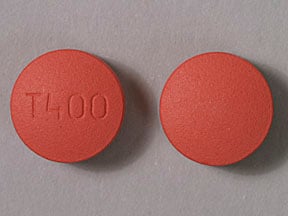
Etodolac ER Coupons & Savings Card – Discount Prices from $31.04
Etodolac is a prescription medication known as a non-steroidal anti-inflammatory drug (NSAID) used to alleviate pain, swelling, and joint stiffness associated with various forms of arthritis, including osteoarthritis, rheumatoid arthritis, and juvenile idiopathic arthritis. This medication can also be used for the short-term relief of sudden pain. Etodolac is available in two forms: an immediate-release pill taken multiple times a day and an extended-release tablet taken once daily, suitable for individuals aged 6 years and older. By inhibiting cyclooxygenase (COX) enzymes, Etodolac effectively reduces inflammation and pain. While using this medication, patients may experience side effects such as stomach pain, dizziness, and rash. It is essential to discuss with a healthcare professional about any non-drug treatments, other medications, or supplements you are considering. Etodolac is available as a generic drug since the brand name version is no longer on the market. Always consult your doctor, nurse, or pharmacist for personalized medical advice.
Our coupons are free to use. Before paying, show the pharmacist your Etodolac ER savings card to get your free discount. Use our filters below to edit the prescription box to match your needs. The Etodolac ER prices will update based on your prescription needs. Above our Etodolac ER coupons, you can change your location to see pharmacy prices and costs in other areas. We're here to help you buy Etodolac ER at the lowest price with our prescription discount card.
My prescription
Edit
400MG, Etodolac ER (30 Tablet Extended Release 24 Hours)
Select pharmacy

CVS
$31.58
COUPON PRICE
Walgreens
$31.04
COUPON PRICE
Walmart
$38.99
COUPON PRICE
Albertsons
$45.75
COUPON PRICEEtodolac ER savings card
Show this card to your pharmacist
Walgreens
$31.04
BIN
ID
PCN
GRP
011867
LH016551E3
HT
LABH001
Powered by
Etodolac is a prescription medication known as a non-steroidal anti-inflammatory drug (NSAID) used to alleviate pain, swelling, and joint stiffness associated with various forms of arthritis, including osteoarthritis, rheumatoid arthritis, and juvenile idiopathic arthritis. This medication can also be used for the short-term relief of sudden pain. Etodolac is available in two forms: an immediate-release pill taken multiple times a day and an extended-release tablet taken once daily, suitable for individuals aged 6 years and older. By inhibiting cyclooxygenase (COX) enzymes, Etodolac effectively reduces inflammation and pain. While using this medication, patients may experience side effects such as stomach pain, dizziness, and rash. It is essential to discuss with a healthcare professional about any non-drug treatments, other medications, or supplements you are considering. Etodolac is available as a generic drug since the brand name version is no longer on the market. Always consult your doctor, nurse, or pharmacist for personalized medical advice.
Our coupons are free to use. Before paying, show the pharmacist your Etodolac ER savings card to get your free discount. Use our filters below to edit the prescription box to match your needs. The Etodolac ER prices will update based on your prescription needs. Above our Etodolac ER coupons, you can change your location to see pharmacy prices and costs in other areas. We're here to help you buy Etodolac ER at the lowest price with our prescription discount card.
More prescriptions for rheumatoid arthritis
coupons from$1120.07Save 73%
coupons from$215.01Save 74%
coupons from$20.61Save 70%
coupons from$9.24Save 70%
coupons from$1487.45Save 72%
coupons from$7.93Save 67%
coupons from$9.65Save 78%
coupons from$17.34Save 52%
More prescriptions for rheumatoid arthritis
Actemra Save 73%coupons from $1120.07
Kineret Save 74%coupons from $215.01
Goodsense Nasal Allergy Spray Save 70%coupons from $20.61
Ft Ibuprofen Minis Save 70%coupons from $9.24
Orencia Save 72%coupons from $1487.45
Aleve Save 67%coupons from $7.93
Aleve Arthritis Pain Save 78%coupons from $9.65
Eq Aspirin Low Dose Save 52%coupons from $17.34
Etodolac ER dosage forms
Use our Etodolac ER 400MG coupon with prices from $31.58 for 30 Tablet Extended Release 24 Hours. You can also use our Etodolac ER 400MG coupon with prices from $44.87 for 60 Tablet Extended Release 24 Hours. We have a Etodolac ER 400MG coupon with prices from $70.58 for 100 Tablet Extended Release 24 Hours. You can use our Etodolac ER 500MG coupon with prices from $12.71 for 15 Tablet Extended Release 24 Hours.
Dosage Quantity Price from Per unit 400MG 30 Tablet Extended Release 24 Hours $31.58 $1.05 400MG 60 Tablet Extended Release 24 Hours $44.87 $0.75 400MG 100 Tablet Extended Release 24 Hours $70.58 $0.71 500MG 15 Tablet Extended Release 24 Hours $12.71 $0.85 500MG 20 Tablet Extended Release 24 Hours $14.45 $0.72 500MG 30 Tablet Extended Release 24 Hours $17.92 $0.60 500MG 60 Tablet Extended Release 24 Hours $28.34 $0.47 500MG 100 Tablet Extended Release 24 Hours $42.23 $0.42 600MG 7 Tablet Extended Release 24 Hours $13.71 $1.96 600MG 15 Tablet Extended Release 24 Hours $24.94 $1.66
| Dosage | Quantity | Price from | Per unit |
|---|---|---|---|
| 400MG | 30 Tablet Extended Release 24 Hours | $31.58 | $1.05 |
| 400MG | 60 Tablet Extended Release 24 Hours | $44.87 | $0.75 |
| 400MG | 100 Tablet Extended Release 24 Hours | $70.58 | $0.71 |
| 500MG | 15 Tablet Extended Release 24 Hours | $12.71 | $0.85 |
| 500MG | 20 Tablet Extended Release 24 Hours | $14.45 | $0.72 |
| 500MG | 30 Tablet Extended Release 24 Hours | $17.92 | $0.60 |
| 500MG | 60 Tablet Extended Release 24 Hours | $28.34 | $0.47 |
| 500MG | 100 Tablet Extended Release 24 Hours | $42.23 | $0.42 |
| 600MG | 7 Tablet Extended Release 24 Hours | $13.71 | $1.96 |
| 600MG | 15 Tablet Extended Release 24 Hours | $24.94 | $1.66 |
| 600MG | 30 Tablet Extended Release 24 Hours | $31.58 | $1.05 |
| 600MG | 60 Tablet Extended Release 24 Hours | $44.87 | $0.75 |
| 600MG | 100 Tablet Extended Release 24 Hours | $70.58 | $0.71 |
